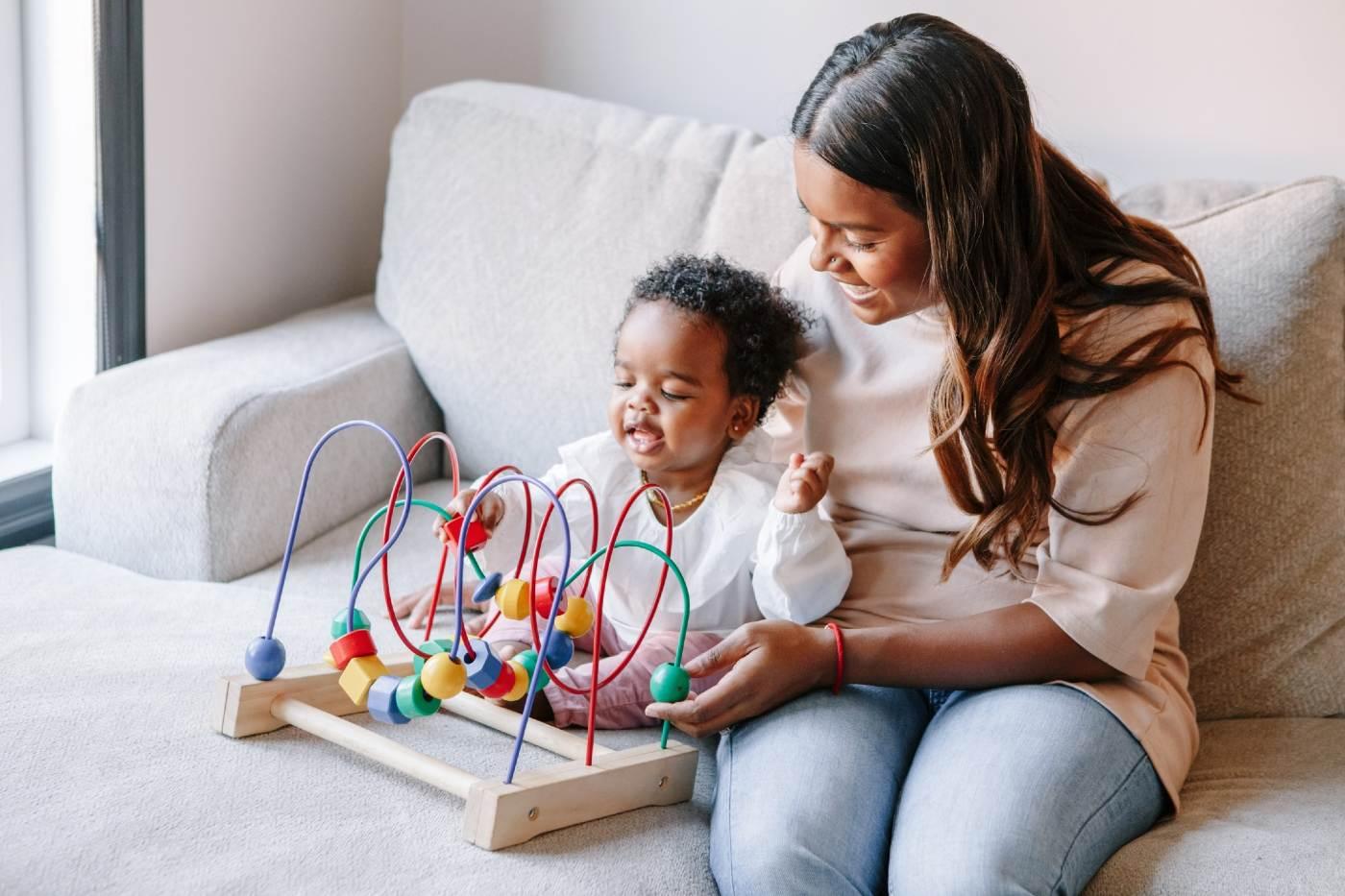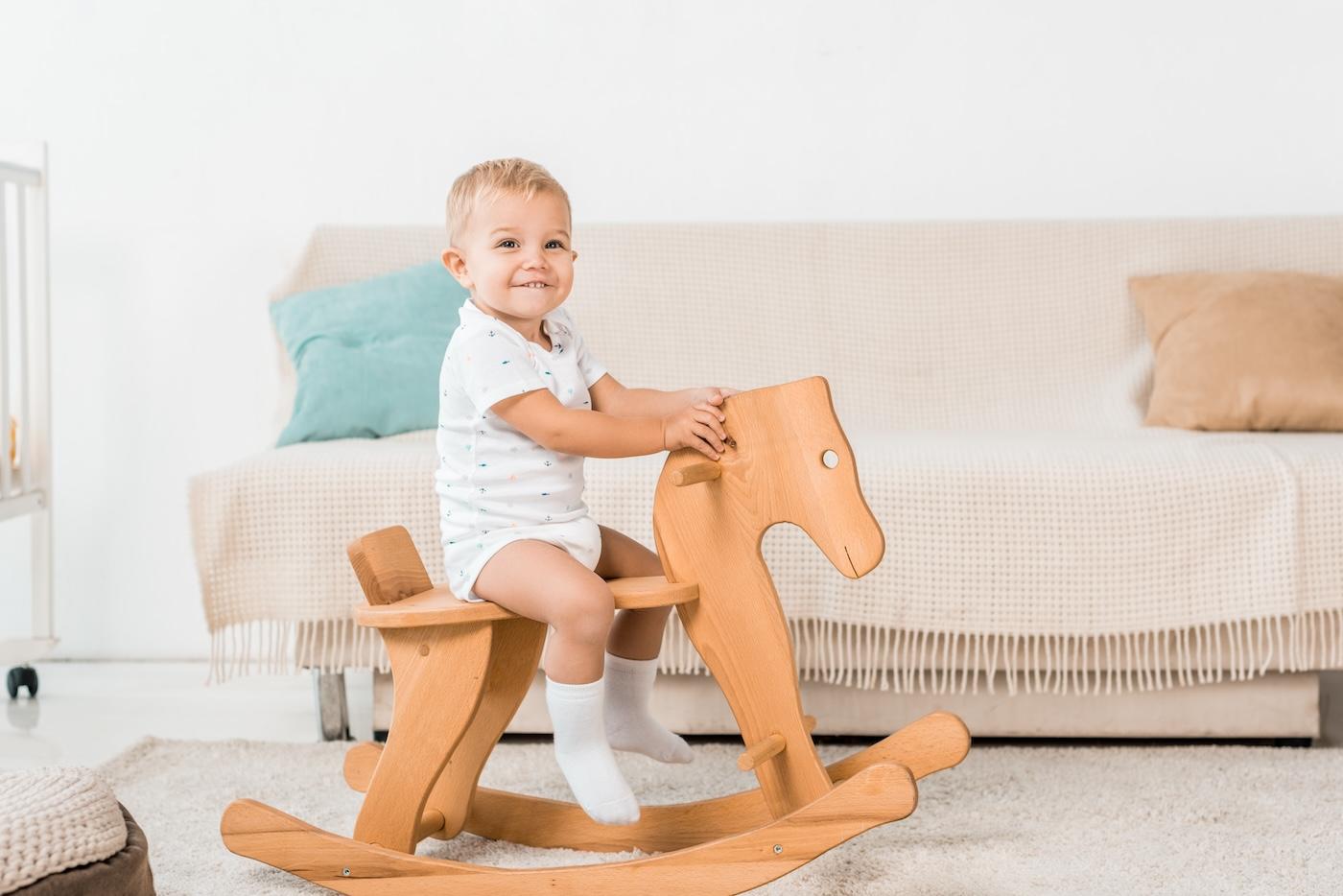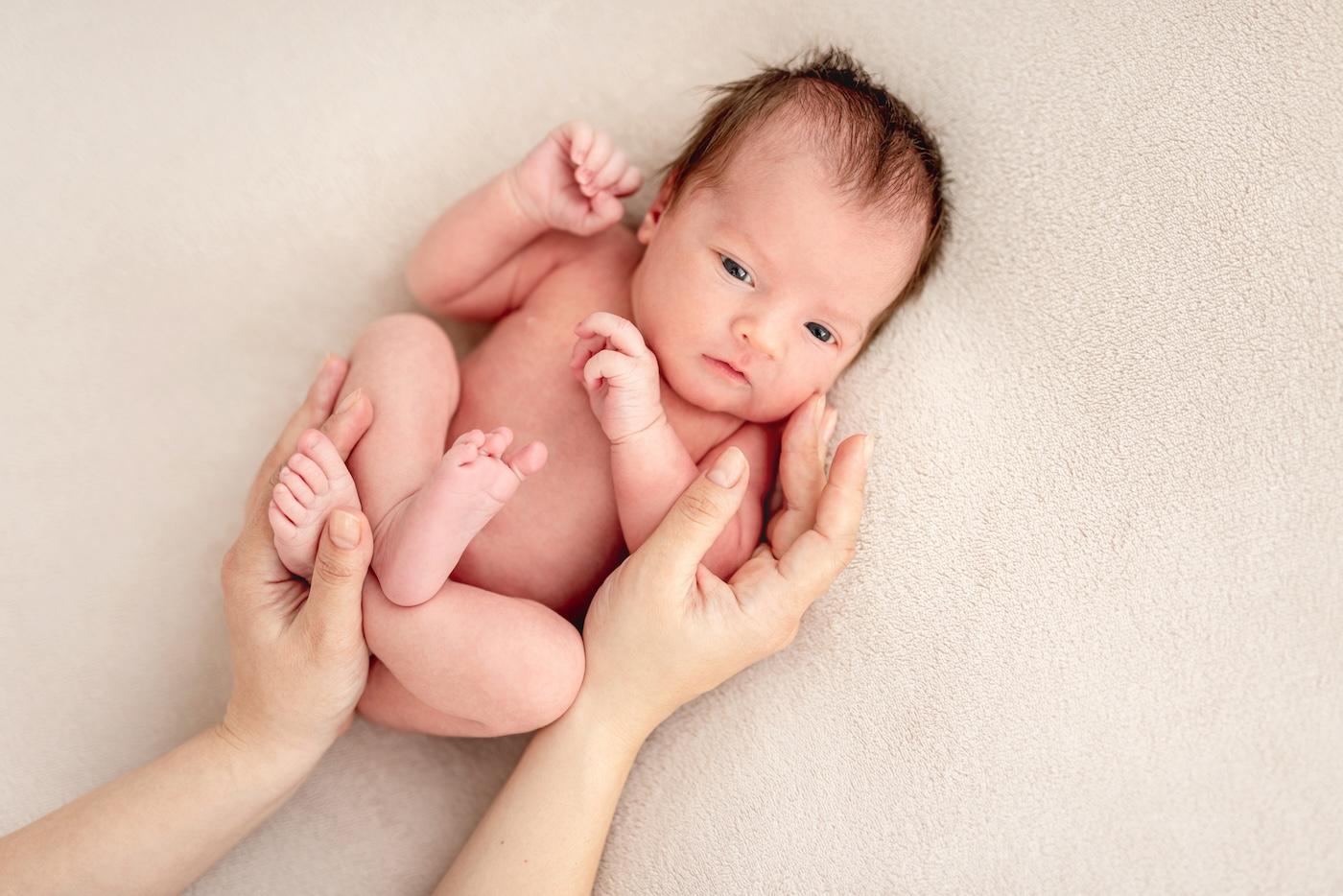BABY
8 Simple Ways to Engage and Entertain Babies 6 to 12 Months
Here is how to encourage your little one’s skill mastery through play during these magical months.

Written by
Happiest Baby Staff

The months between and 6 and 12 are an exciting time for babies. Your little one is growing and developing at a breathtaking pace, and the milestones that begin to happen signal the transition from a small, helpless newborn to a curious, mobile, babbling toddler.
During these few months, babies will likely be able to sit up on their own, feed themselves little finger foods, begin to crawl, pull themselves up to a standing position and take those first steps—they may even say their first words. The best way to encourage your baby to develop mastery over their new skills is through loving support and lots of play. Check out these eight activities that you can try at home with your little one.
Reading
It is never too early to start reading! Between the ages of 6 and 12 months, babies can learn about storytelling, 'reading' a picture, and listening skills.
Peekaboo
By around 6 months old, babies begin to understand object permanence. Meaning, even if they cannot see an object, they start to realise that it is still there. This makes the game of peekaboo wildly fun for babies. Hide your face begin your hands, and then say, peekaboo! As you reveal your face again. Try different versions of the game, like hiding objects under a blanket or inside a bag.
Stacking
Stacking is a brilliant opportunity for play and skill-building. Babies will already try to grasp small objects, and stacking encourages them to manipulate objects to build something. Colourful stacking rings or nesting boxes are perfect toys to practice this skill set.
Puzzles
Sure, your baby might not be able to handle a 100-piece jigsaw yet, but a giant, colourful floor puzzle with Mum or Dad might be just the ticket. Wooden 3-D puzzles are also a fun way to get babies thinking about shapes and space too. Keep a puzzle or two around to help spark a love for problem-solving.
Clapping and banging
Bring out the pots and pans, because it is time to get the family band back together! At this age, babies are learning how to clap their hands and bang on objects to make noise. It might sound like a racket to us, but to them, it is sweet fun musical bliss. Bang and clap along with your child and encourage them to follow your patterns of sound.
Dancing
Dancing is a super fun way to bond with your child. Play some music and have an impromptu dance party in your living room. Hold your child’s hands while they practice standing and bouncing their body. Not only is this an excellent way to get some exercise, but it helps your baby to practice balance and improve strength and coordination.
Talking, rhyming, and singing
The language center in your baby’s brain is developing quickly and is prime for absorbing new words. Even if your child cannot quite talk yet, it does not mean they do not understand some of what you are saying to them. Practice saying words like mummy and daddy and even pointing out names like a bottle, nappy, foot, hands, hug, etc. Rhyming and singing are great ways to activate your baby’s language skills while also having fun together.
Playdough
Who does not love play dough? The moldable clay is fun for kids of all ages. Allowing your baby to squish and pound on a lump of colourful clay is great for their hand-eye coordination, grasping skills, and building hand muscles. It is also a delightful tactile experience for babies. However, never let your baby play with playdough unsupervised, and do not let them put the dough in their mouths, as it could be a choking risk. Because babies might still attempt to take a lick, it is best to stick with taste-safe versions.
Disclaimer: The information on our site is NOT medical advice for any specific person or condition. It is only meant as general information. If you have any medical questions and concerns about your child or yourself, please contact your health provider. Breastmilk is the best source of nutrition for babies. It is important that, in preparation for and during breastfeeding, mothers eat a healthy, balanced diet. Combined breast- and bottle-feeding in the first weeks of life may reduce the supply of a mother's breastmilk and reversing the decision not to breastfeed is difficult. If you do decide to use infant formula, you should follow instructions carefully.
SHARE THIS ARTICLE
PARENT PICKS
Bestsellers



















